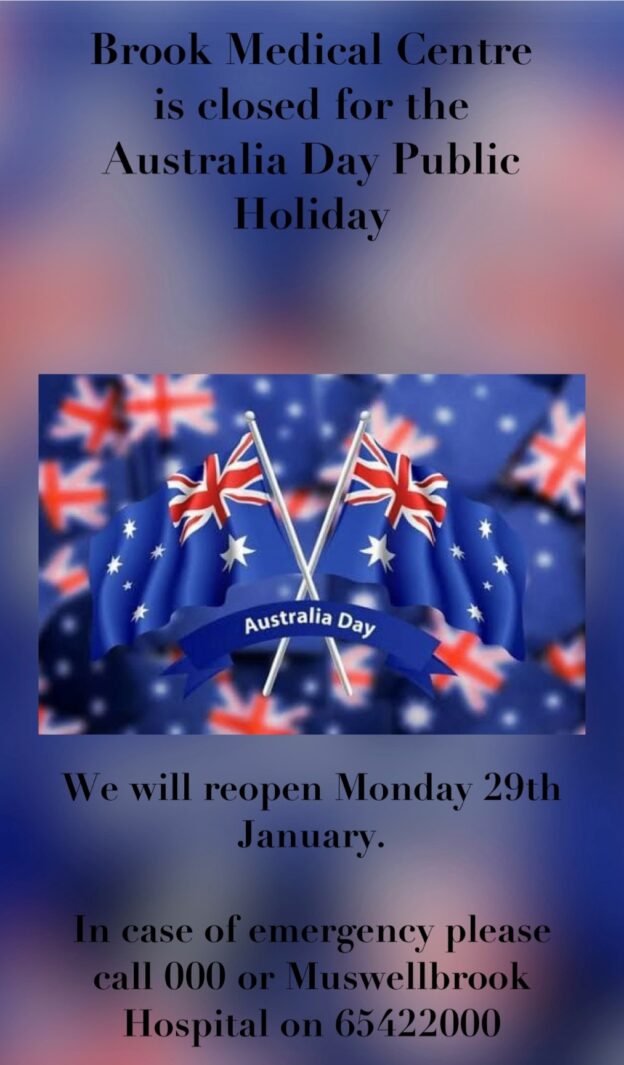END OF AN ERA
For nearly 42 years Dr Mark Rikard-Bell has called Muswellbrook his home.
Since his graduation 45 years ago, Dr Rikard-Bell has devoted 42 of those years to our community and we have been the richer for it!
Dr Rikard-Bell has decided the time has come to hang up his stethoscope, pack away his sphygmomanometer and get some well-deserved time to devote to himself, his wife, Dr Delma Mullins, his children, and many grandchildren.
“It is hard to put into words the deep appreciation and difference Mark has made, and to thank him for all his years of dedication and service to our community” says Managing Partner Dr Raj Swamy. “Having a career spanning so long, it is hard to outline his extraordinary vocation”.
Dr Rikard-Bell only retired from obstetric practice 5 years ago and has continued to be a procedural GP at the Brook Medical Centre. His ambition was always to be a Procedural Rural GP and he has certainly become the quintessential rural general practitioner!
Dr Rikard-Bell delivered over 3000 babies in his time in Muswellbrook over 35 years until ceasing obstetric practice 5 years ago. During that time, he performed caesarians, as well as twin and breech deliveries. There are many families in town who were delivered by Dr Rikard-Bell, and he subsequently delivered their children, which is a unique privilege enjoyed with long term service in one community.
He was also the anaesthetist for many elective and emergency surgical lists.
Over the past 10 years, as Dr Rikard-Bell planned to decrease the obstetric and anaesthetic component of his General Practice work, he gained advanced training in skin cancer management and surgical skills to expand his procedural work, with better hours.
With GP work, the patient demographic ages and he was able to recognise and train for their medical needs, particularly with decrease in local surgical services for skin cancer management.
Dr Rikard-Bell has previously commented: “This is another joy of rural GP work, as we are a unique part of our patients’ journey and adapt to their changing needs. I always felt very privileged to be able to grow with my patients.”
Dr Rikard-Bell has certainly enjoyed Rural Procedural GP work to the full. His legacy for all Rural GPs will be lasting due to the difference he has made and the insight he has been able to provide to the Rural Doctors Association (RDA) and the Ministry of Health. His goal is and always has been for quality patient care in a rural setting.
His career and dedication have not gone unnoticed by the Rural Doctors Association. He was nominated for, and subsequently won the Bowman Cutter award for 2023. The Bowman Cutter award is indeed prestigious, and only given to those Drs who have provided exceptional service to the Rural Community they work and serve in.
Dr Rikard-Bell was an apt choice as a recipient, and, although quite humbled by the award, is rightfully proud.
Not unlike the reputation that he is well known for, he has chosen to fulfil his obligations as VMO on call at the emergency department of Muswellbrook Hospital instead of accepting this award in person. This will be his last on call shift and he will not miss an opportunity to help and do his duty.
“With retirement fast approaching we have the privilege to reflect on the exceptional career of a doctor who has given so much to so many. Many thousands of babies, many thousands of families, the sick, elderly, and vulnerable, have all had the advantage of being cared for by this true gentleman and gifted Doctor. Our whole community, the many nurses he has worked alongside, junior Doctors and registrars he has taken time to teach, and all his colleagues past and present have been positively impacted by Dr Rikard-Bell.” Says Practice Manager Kristen Seymour.
He has been able to provide all patients with his unique blend of caring, compassion and medical expertise.
He is synonymous with the Brook Medical Centre and our town. All 6 daughters of Mark and Del were raised and educated in Muswellbrook. This is a true testament to his devotion to the community.
The true measure of a man is in his heart and character – what he gave with what gifts he had. His true measure was his life’s work and loyalty to our community. He is genuinely loved and deeply respected.
Happy retirement Dr Rikard-Bell!























